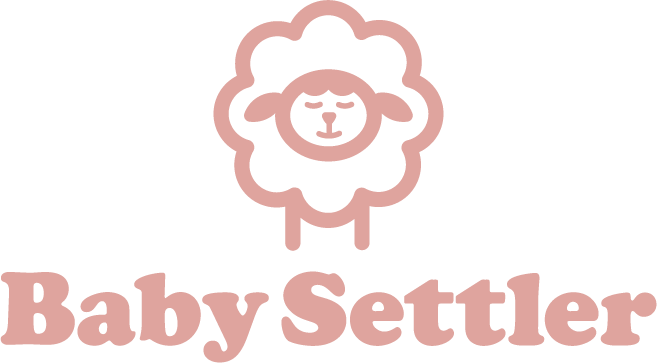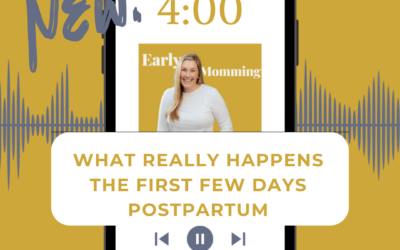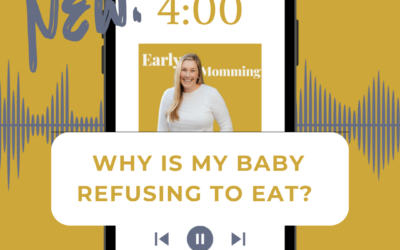
Spit happens, mama. Breastmilk or formula coming back up after feeding your baby isn’t an immediate cause for concern. This is why burp cloths exist! But, why do babies spit up, and when does normal spit up become abnormal? Are there any ways to reduce spit up, and should you hold off on feeding your baby after spit up?
We’re answering all of these questions and more!
What Is Spit Up?
Also known as baby reflux or posseting, spit up is when a small amount of milk or formula is regurgitated. It happens – especially during the first few months of life – because little ones’ digestive systems are still developing. As a newborn grows and their digestive system becomes stronger, spit up decreases and resolves on its own – spitting up usually stops at around 12 months of age.
When Should You Go To A Doctor For Spit Up?
If your baby is spitting up excessively or experiencing other symptoms such as vomiting, consistent irritability, or poor weight gain, go to your healthcare provider. It’s important to rule out any underlying medical conditions.
Spit Up Vs Vomit
While both spit up and vomit involve the contents of your baby’s stomach coming up, these two things are different. “Spit-up is what happens when the contents of your baby’s tummy come back up easily – not forcefully – through their mouth. It often comes along with a burp. It’s not the same as vomiting, which is when your baby throws up their stomach contents with force and muscle contractions,” explains WebMD. You may also find that your baby will spit up “happily” – they’re not distressed, the milk just dribbles down their chin. Whereas vomit will often be a different color than spit up, and be accompanied by crying and sometimes fever.
Reasons For Spit Up After Feeding
While a baby’s underdeveloped digestive system is one of the causes of spit up, there are other reasons, too, including:
- Baby swallowing air during feedings
- Baby drinking too much milk
- Infant GERD
Spit up (along with poor weight gain) might indicate that your baby has gastroesophageal reflux disease, or infant GERD. This is when the lining of the esophagus becomes irritated and damaged by all the spit-up. “It can cause pain and fussiness during and after feeding, and make it harder for baby to feed and gain weight. Other signs of GERD include excessive drooling, uncontrollable crying, poor sleep and erratic feeding patterns,” says What To Expect. These are signs to take your baby to your healthcare provider.

When Should You Feed Baby Again After Spit Up
It may seem that your baby has spit up a significant portion of their meal, so you may think you need to feed them again. However, the spit up is probably not as much as you think. Parents tells, “Even if your baby spits up after every feeding, they’re probably taking in enough. Your pediatrician will evaluate your infant’s weight gain at their well-baby checkups.” So, there is no need to give your baby more milk after they spit up – overfeeding can lead to even more reflux.
Watch for any hunger cues to see if your baby is still hungry, such as:
- Turning their head from side to side
- Opening and closing their mouth
- Smacking their lips
- Sucking on their fingers and hands
Tips To Keep Baby From Spitting Up
There are a few ways to help reduce the frequency of your baby spitting up:
Burp Your Baby
We suggest burping your baby before, during, and after each feed to lessen reflux and prevent feelings of discomfort, and promote a full feeding.
Tip: If you’re struggling to get your baby to burp, lay them down on their back on a flat surface for one to two minutes. Then try burping them again.
Avoid Play Straight After Feeding
Give your baby a chance to digest their milk. Bouncing and playing with your baby straight after feeding can cause them to spit up.
Try Different Breastfeeding Positions
The position of your baby during breastfeeding can affect the flow of your milk. Babies are able to feed more effectively and swallow less air when they’re correctly aligned with the breast and nipple.
Try A Different Bottle Nipple / Bottle Feeding Technique
Swallowing too much air could be the cause of excessive spit up. Try a different bottle nipple (we recommend these) and paced bottle feeding. This baby-led feeding technique reduces reflux as the baby is able to take a break from sucking and stop altogether when they’re satisfied.
Baby spit up is common and not usually a cause for concern if your baby is still eating well and gaining weight. But, it’s messy! Burping your little one, trying out different breastfeeding positions, or trying paced bottle feeding can all help reduce the frequency of reflux.




